AUGUSTA — Facing a bone marrow cancer diagnosis and feeling weak and struggling to eat and walk, Anne Latendresse — who had recently lost her father, Robert, and brother, Bob, to cancer — was determined that her family would not suffer another loss.
In need of a stem cell transplant that could cure the disease she carried for 16 years, the Winslow woman told more than 1,000 attendees Saturday at MaineGeneral’s Day of Hope that she waited nine months before Be The Match bone marrow donor registry found her perfect donor match, a European woman she did not know.
Getting a stem cell transplant in July 2021 meant a trip to a Boston hospital, and Latendresse was hesitant to leave both her actual family — her husband, Mike, and daughters Colette and Kassidy — as well as the family she had made at the Harold Alfond Center for Cancer Care. For years she had gone there for treatment and to play the piano for other patients.
“Before we left for Boston, that day, it was tough,” Latendresse told the crowd gathered at the Augusta Civic Center to honor, celebrate and remember cancer patients. “My girls and I embraced, in a long, long hug. With unspoken emotions, and no words. Just crying.”

Anne Latendresse, a myelofibrosis survivor and one of two Day of Hope marshals, second from left in red top, leads the Walk For Hope along University Drive on Saturday in Augusta. Joe Phelan/Kennebec Journal
After a grueling four days, that included 16 rounds of chemotherapy meant to remove all of her bone marrow and blood cells, she underwent a stem cell transplant. Initially it seemed to be a success, and Latendresse recovered enough to take part with Mike in a 3.2-mile running course filled with 24 obstacles.
But, devastatingly, it turned out the chemotherapy hadn’t gotten all of her old cells, and the mutation in her marrow was coming back.
Doctors suggested a T-stem cell infusion, and the same European donor agreed to help again. Doctors said there was about a 50% chance of it working. She had the procedure done.
Just a couple of weeks ago, she learned that, after just one infusion, the procedure had worked and she had 100% donor cells. The mutation was gone.
Latendresse shared that if she had a chance to go back to 2005, when she was first diagnosed during a routine annual physical, and have it removed from her body, she wouldn’t do it. She explained the people she met, her spiritual journey, the peace of mind she found about who she is and how she lives, was worth every step of the difficult journey.

The long line of Walk For Hope participants curves around University Drive on Saturday in Augusta. Joe Phelan/Kennebec Journal
She and fellow speaker Josh Canty of Augusta sought to inspire hope to those attendees dealing with cancer in their own and loved ones’ lives.
Canty was diagnosed with stage 3 colorectal cancer in 2019 and had 25 rounds of radiation treatment at MaineGeneral’s cancer center. He had a large cancerous tumor removed, and a colostomy bag put in.
At some points of his treatment, Canty said he was in such pain that he felt that if he died the next day, that might be OK. But with support, he got through it, and added that things have gotten better since.

The long line of Walk For Hope participants curves around University Drive on Saturday in Augusta. Joe Phelan/Kennebec Journal
He joked with attendees about the colostomy bag, lifting his shirt to show it while explaining it did not have an odor, something he had worried about previously.
He urged attendees to get screened, noting screenings and other free services and educational programs were available at Saturday’s event.
“Get screened, it’s free, and if you don’t do it, it could cost you,” Canty said.
In one corner of the Civic Center auditorium, Patricia Stevens, a longtime MaineGeneral nurse who works at the Thayer Unit in Waterville, spoke from inside a giant inflatable colon. As she explained to passersby the body parts in various stages from healthy to cancerous, she, too, encouraged screening to catch cancer as early as possible.
The daylong event included the annual Walk for Hope, in which walkers gather pledges to walk and raise funds to help fight cancer. Officials said the goal was to raise $150,000, with all proceeds staying local to support patients and cancer care services.
Walkers hiked through the University of Maine at Augusta campus and most wore pieces of paper on their backs indicating who they were walking in honor or in memory of.
Speakers included “Hope Talks,” as well as a presentation on new, personalized medicines by Lindsey Kelley, genomics navigator for the Maine Cancer Genomics Initiative of the Jackson Laboratory. Katelyn Isaac, a nurse practitioner at the Alfond Center for Cancer Care, hosted a discussion of “chemo brain,” the real impact chemotherapy can have on some patients, limiting their memory and causing other cognitive difficulties.
Isaac offered suggestions to cancer patients, some of whom said sometimes they struggled to come up with words, dates and names. She said they could meet with MaineGeneral social workers, attend support groups in person or online, and take part in activities that stimulate the mind and body, such as word puzzles, yoga and taking walks.
She also suggested patients “unplug” from social media, where their friends are likely to want updates on their health, to help avoid feeling overwhelmed. She said friends or family members could fill the role of informing others, to spare patients from having to do so.
She also noted family and friends can help by being empathetic and caring.
“They need your strength and support now more than ever,” she said.
The Day of Hope was in-person for the first time since 2019, due to the COVID-19 pandemic.
Send questions/comments to the editors.


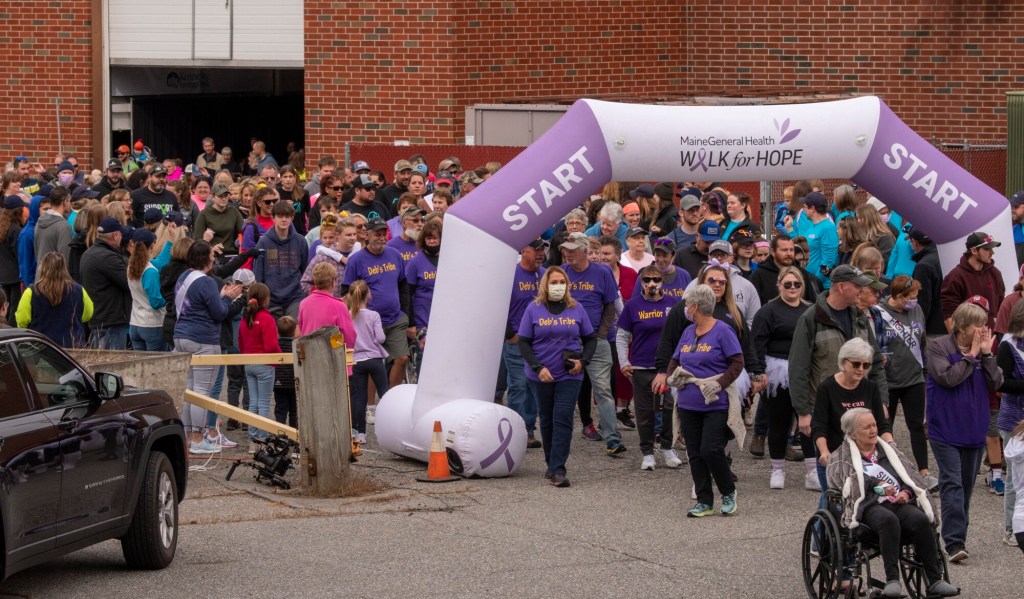
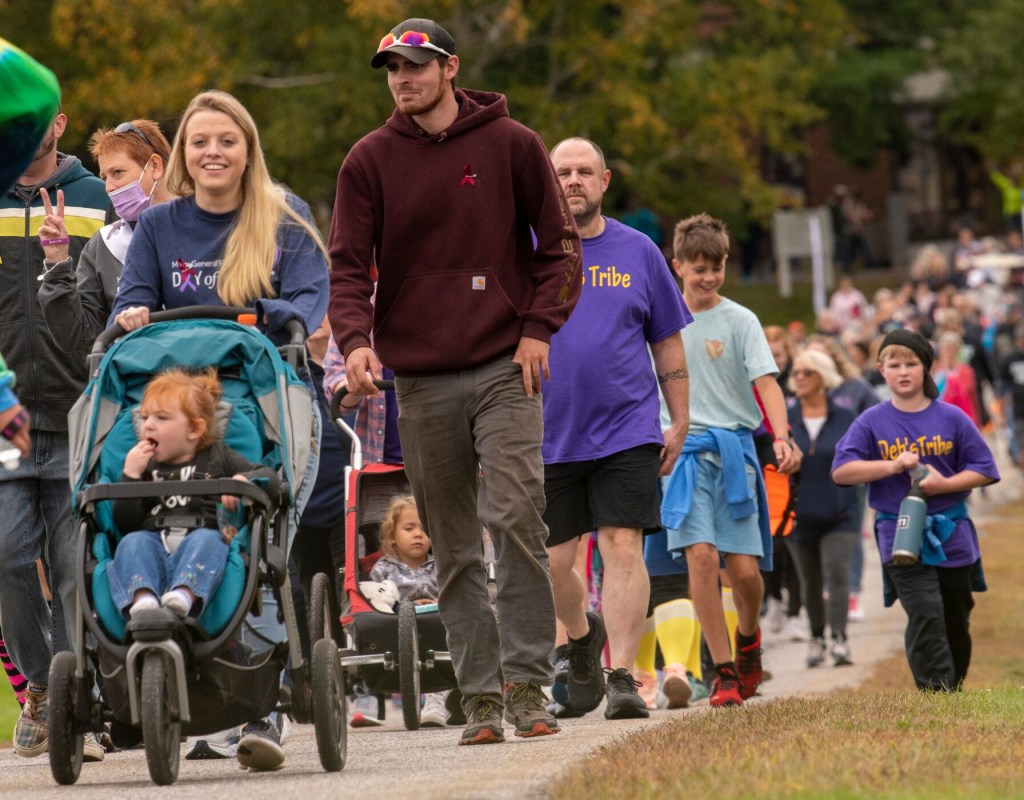
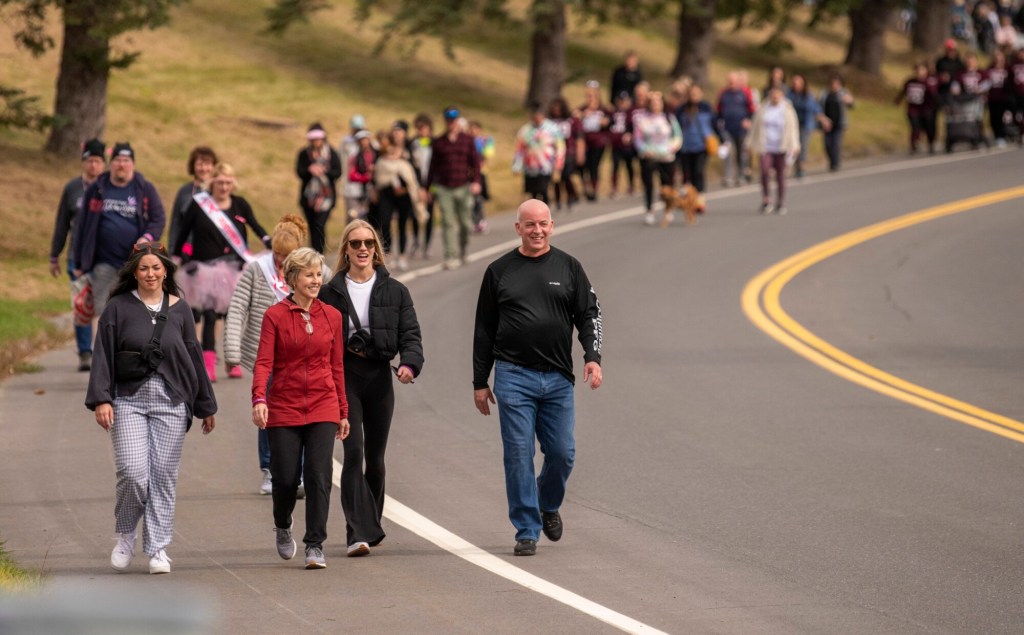
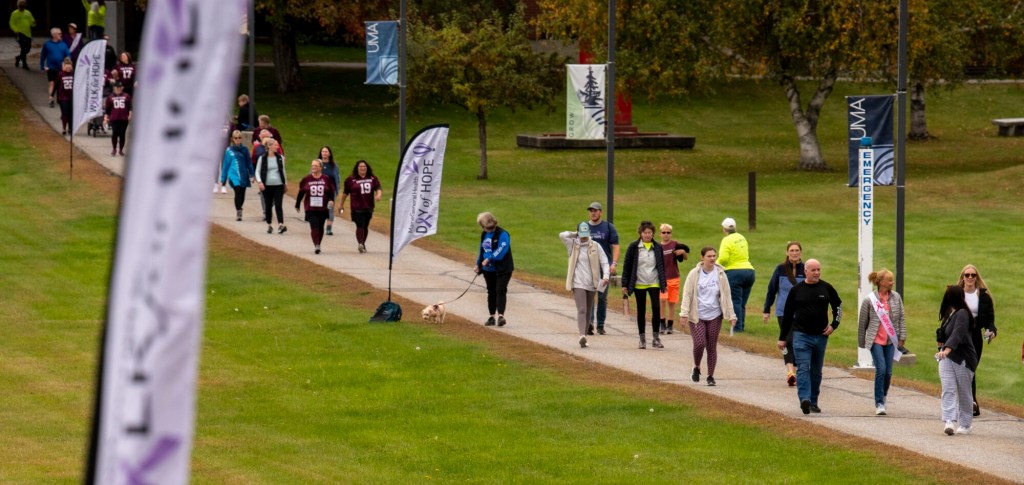
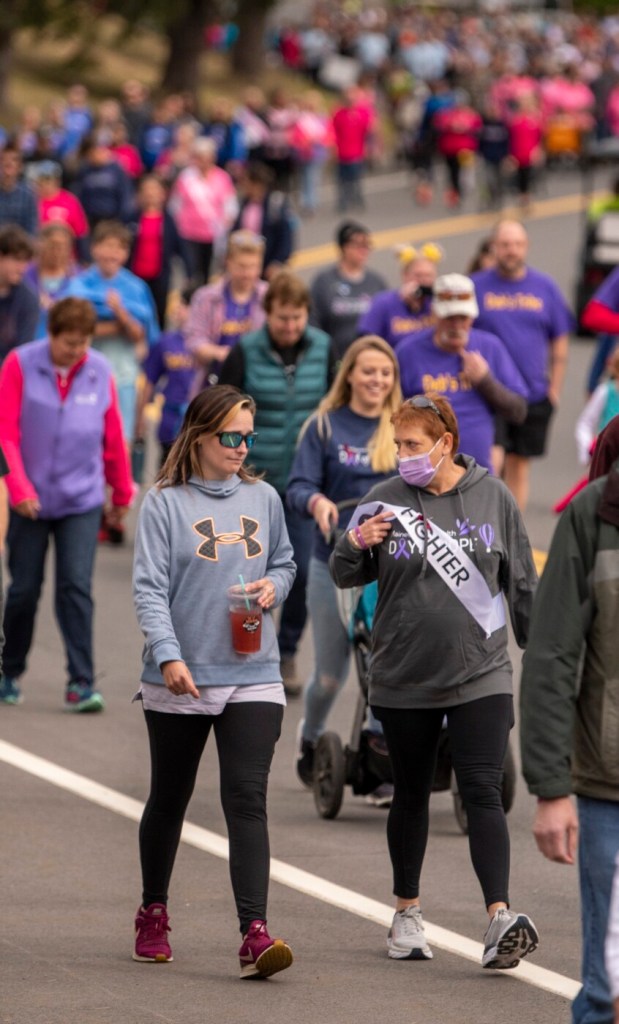
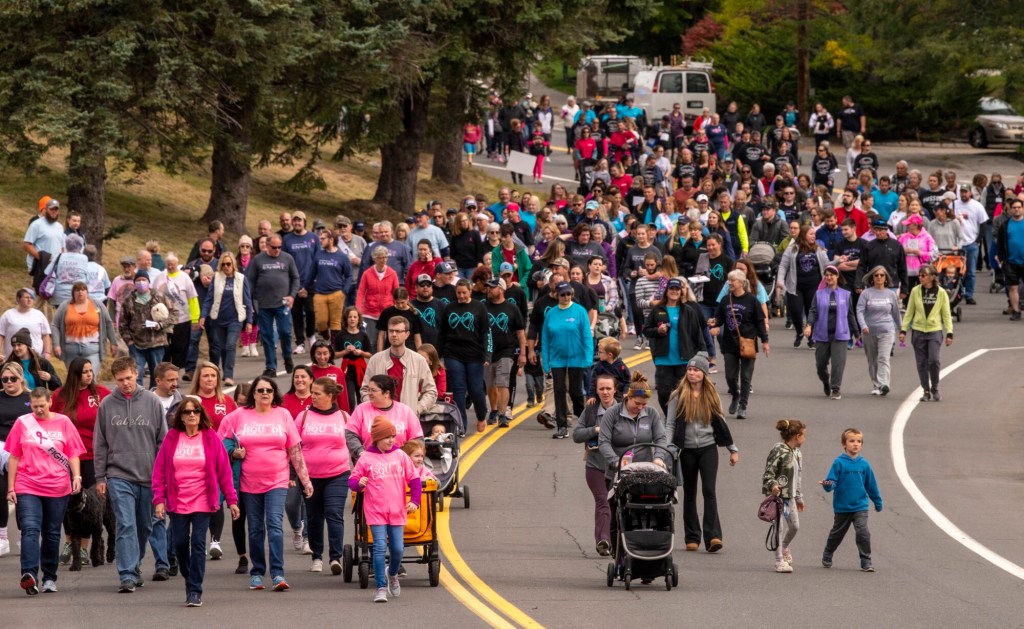
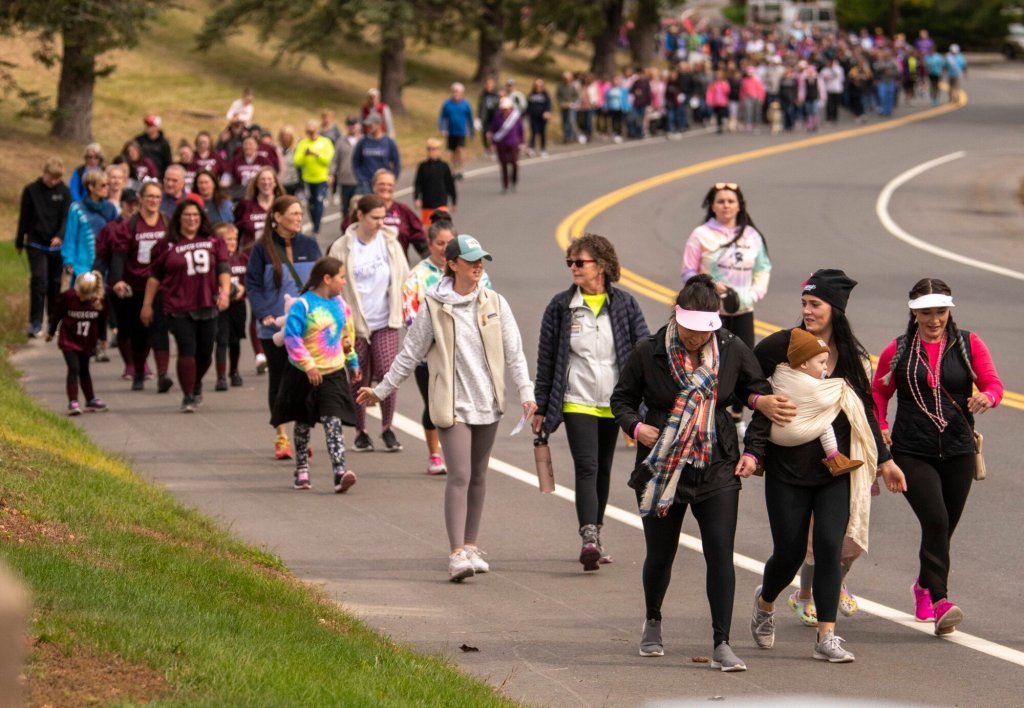

Success. Please wait for the page to reload. If the page does not reload within 5 seconds, please refresh the page.
Enter your email and password to access comments.
Hi, to comment on stories you must . This profile is in addition to your subscription and website login.
Already have a commenting profile? .
Invalid username/password.
Please check your email to confirm and complete your registration.
Only subscribers are eligible to post comments. Please subscribe or login first for digital access. Here’s why.
Use the form below to reset your password. When you've submitted your account email, we will send an email with a reset code.